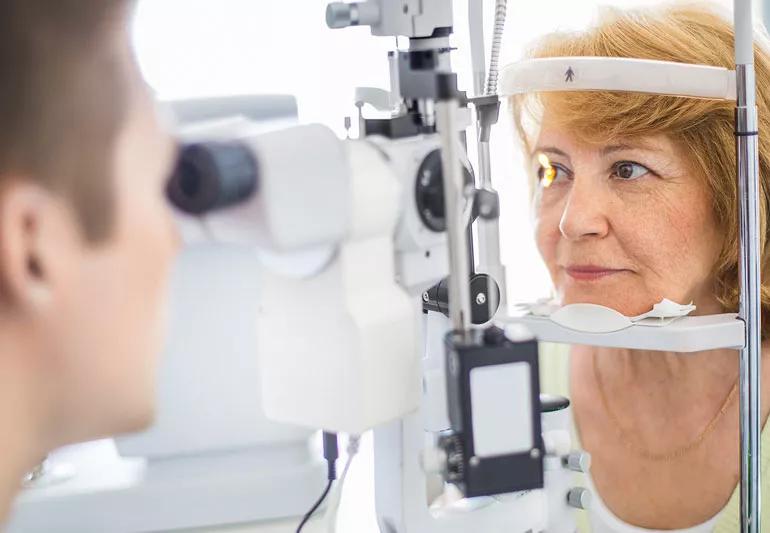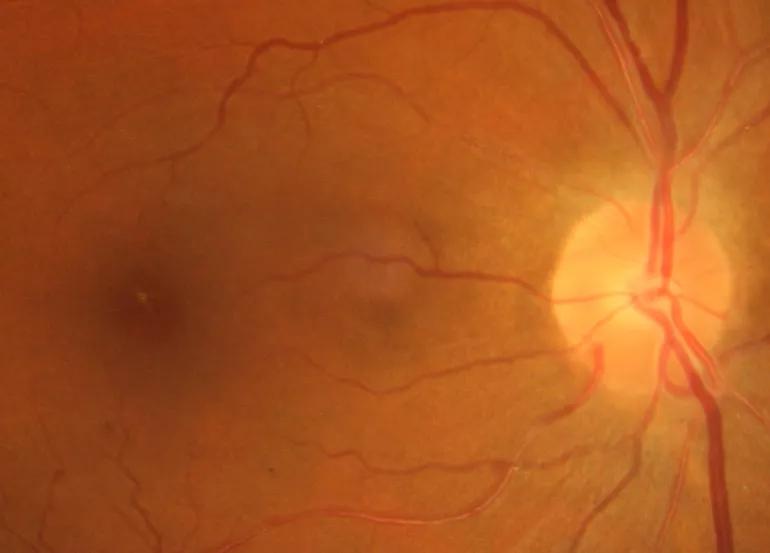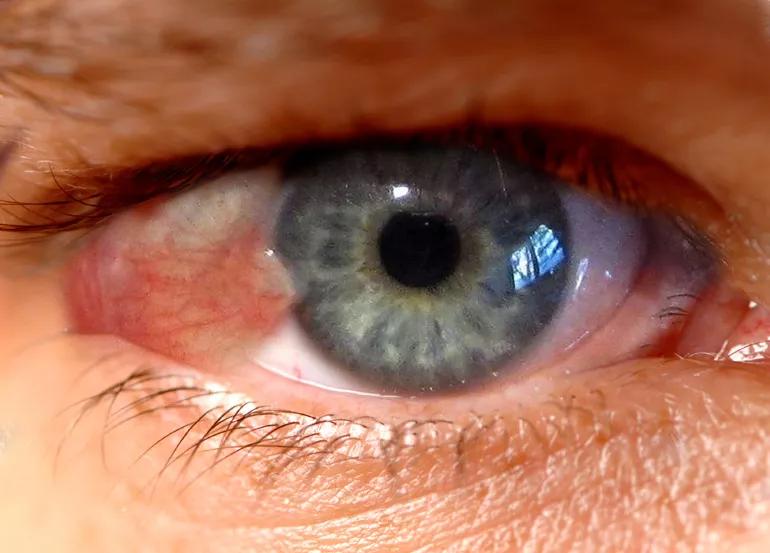More reasons to get regular eye exams

Image content: This image is available to view online.
View image online (https://assets.clevelandclinic.org/transform/11d3c725-01e8-4d8c-97a3-0d7da4a227ce/eyeExam-watch-507115644-770x553_jpg)
Eye exams are important to keep eyes healthy
When your eyes get itchy and watery, you know it’s a sign that your allergies are kicking in. But did you know that your eyes can also give you clues about many other health conditions?
Advertisement
Cleveland Clinic is a non-profit academic medical center. Advertising on our site helps support our mission. We do not endorse non-Cleveland Clinic products or services. Policy
This is part of the reason why regular eye exams are an important piece of your healthcare routine.
Optometrist Kristi Stalker, OD, discusses some other health conditions that your eyes can give clues about.
Ever experience a pesky eye twitch that starts up the day before a huge presentation? It’s not just a coincidence. The most common culprits for an eye twitch are lack of sleep, too much stress or too much caffeine, Dr. Stalker says.
If it’s gets too bothersome, try using a cool pack on the eye to resolve the twitching. “If your whole eye is clinched shut, though, that’s a sign of a problem that needs evaluation by your doctor,” she adds.

Image content: This image is available to view online.
View image online (https://assets.clevelandclinic.org/transform/0d7e0349-e01f-4ef3-8be5-3e4af7d1c9b1/19-HEYE-1952-Diabetic-Retinopathy_jpg)
What seems like intermittent blurry vision could be a sign that someone has a diabetes-related eye problem. “Their vision might be better in the morning and blurry after they’ve had a big meal,” Dr. Stalker explains. This is because high blood sugar levels can cause the lens of the eyes to swell, making vision blurry.
Long-term high blood sugar levels can lead to something more serious called diabetic retinopathy, which can cause vision loss. If you have diabetes, it’s especially important to have an eye exam each year.

Image content: This image is available to view online.
View image online (https://assets.clevelandclinic.org/transform/2698ef72-8e8d-4373-9675-2e20fa5107a2/19-HEYE-1952-Hypertensive-Retinopathy_jpg)
Hypertension can damage the blood vessels that deliver blood to the retina. You won’t notice a difference in your eyes or vision at first, but an eye doctor may be able detect it when they look at the vessels inside the eye.
Advertisement

Image content: This image is available to view online.
View image online (https://assets.clevelandclinic.org/transform/faf59ff4-8a48-4d80-b0b2-74e25e4bee45/19-HEYE-1952-Pinguecula_jpg)
A pink or yellow bump on the white of the eye can indicate damage to the conjunctiva from too much sunlight exposure. “They can expand and grow further in and eventually block your vision,” Dr. Stalker explains. Invest in a good pair of sunglasses that offer full UV protection and cover your eyes completely.
Seeing a few eye floaters usually isn’t a sign of anything serious, but if you notice lightning flashes or darkness in your field of vision, this is a sign of an ocular emergency that warrants immediate medical attention.
These instantaneous flashes are different than those that are a precursor of a migraine. “Sometimes people notice a 20-minute long flickering or sparkling light that expands in size and shrinks back down again,” Dr. Stalker explains. That can be the start of an ocular migraine, which may be followed by a headache.

Image content: This image is available to view online.
View image online (https://assets.clevelandclinic.org/transform/1190f41c-b3a0-4586-9547-7c7c9017785d/19-HEYE-1952-Subconjunctive-Hemorrhage_jpg)
See a splotch of red on the white of your eye? Broken blood vessels in the eye usually result from straining (from heavy lifting or coughing or sneezing) and don’t cause permanent damage. “It looks very alarming, but usually there’s no treatment — it will resolve over the next two weeks,” Dr. Stalker says.
But if this happens multiple times, see your doctor, as it could indicate a bleeding problem.
Advertisement

Sign up for our Health Essentials emails for expert guidance on nutrition, fitness, sleep, skin care and more.
Learn more about our editorial process.
Advertisement
Focus on these surprising stats
Your eyes can reveal many clues about underlying health issues
Most recommended precautions center around minimizing bruising or swelling
Even one drink can have an impact on your cognitive function leading to slurred speech, blurred vision and impaired memory
Understand who may (and may not) benefit
Lorem ipsum dolor sit amet. Et odio Quis vel ipsam omnis eum alias deleniti et placeat impedit non voluptas galisum hic autem enim et cupiditate aliquid. Est beatae quidem non facilis autem ut commodi nisi aut tempore rerum et dolores voluptatem cum enim optio id sapiente quasi. Ad laboriosam officiis 33 cupiditate sequi ea voluptatum consectetur qui necessitatibus voluptate et quasi doloremque et facere explicabo quo explicabo officia
Type 2 diabetes isn’t inevitable with these dietary changes
Applying a hot or cold compress can help with pain
Pump up your iron intake with foods like tuna, tofu and turkey